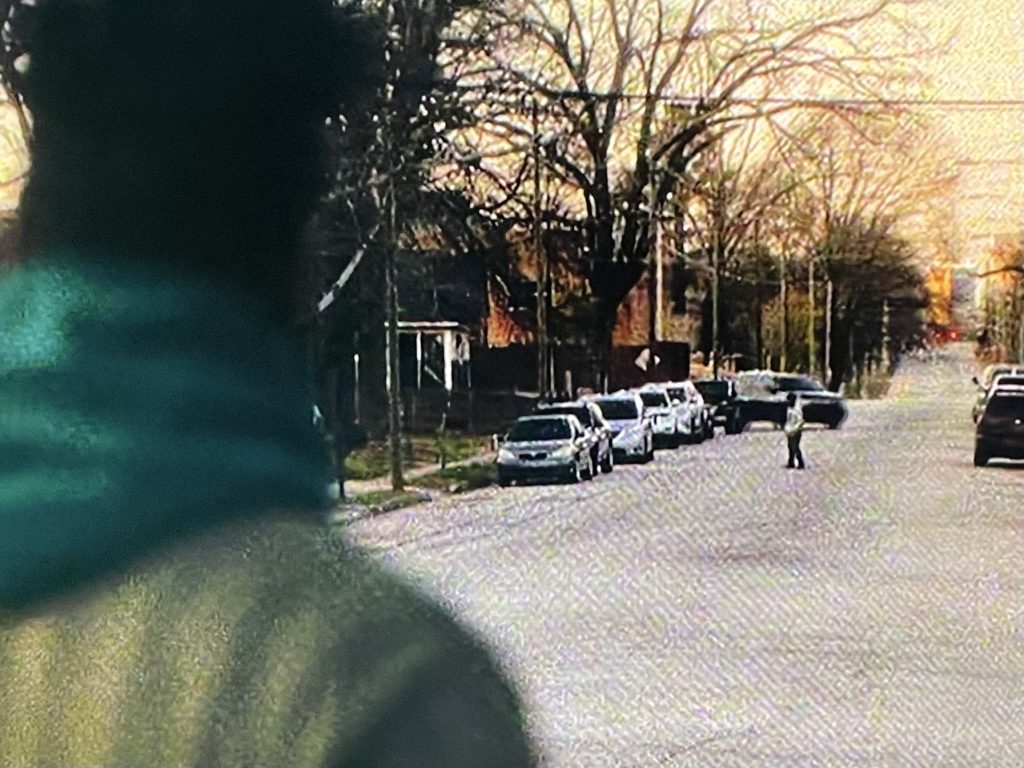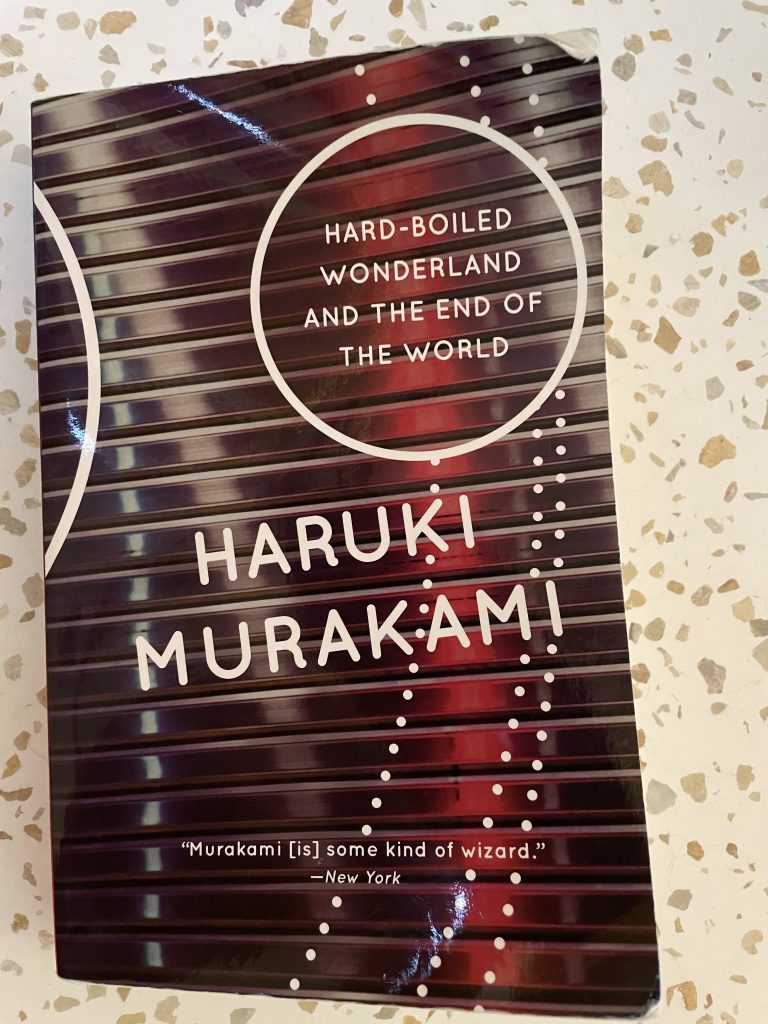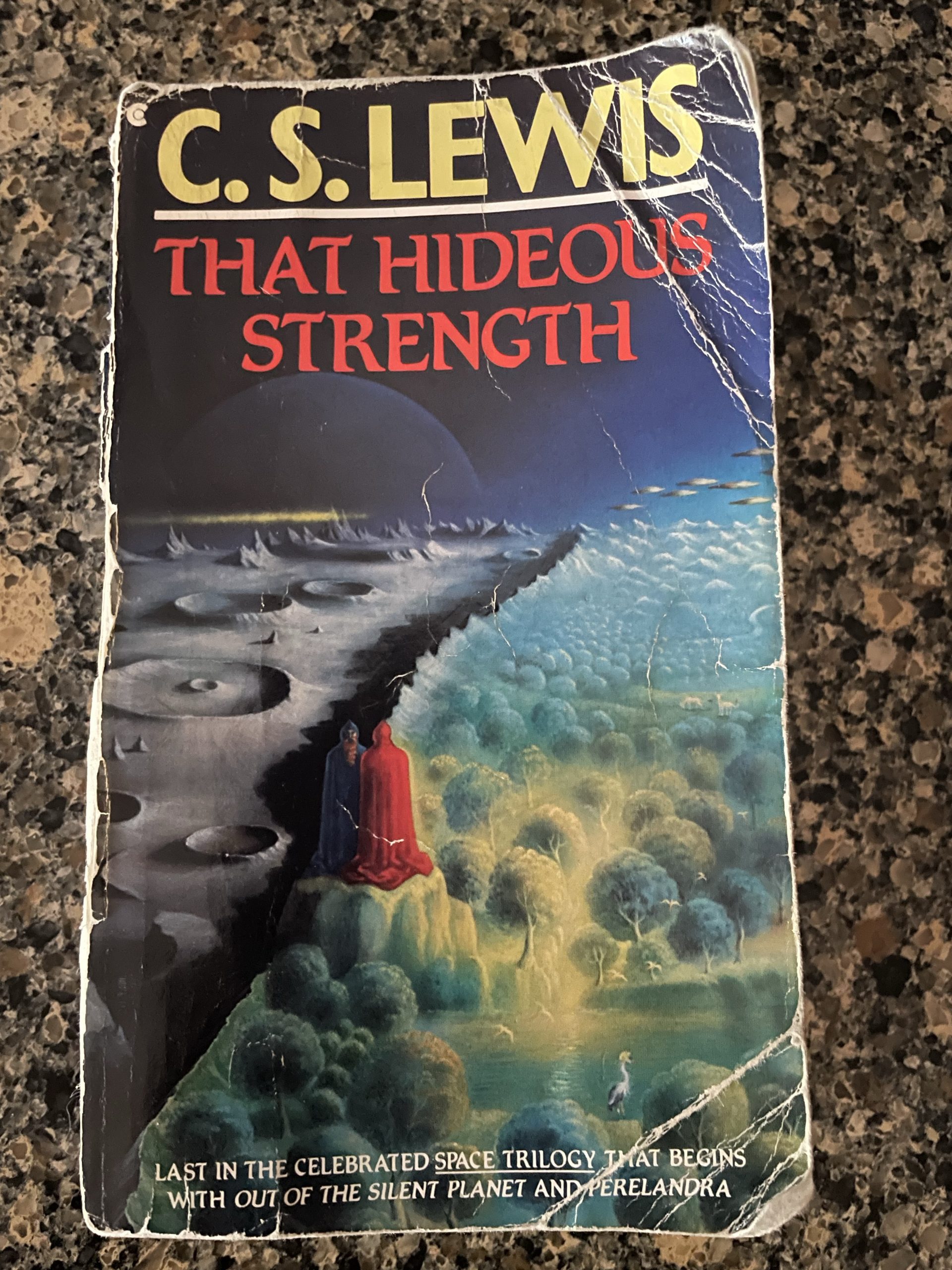scifi
FEERSUM ENDJINN, A No-Spoiler Review
Iain M. Banks is a Scottish writer who produced literary and science fiction. He is a must read for all scifi fanatics. I only say this to the purists because if you are not a scifi purist, you might find Banks challenging. This is a review of FEERSUM ENDJINN, one of his scifi books. I have no idea if his lit fiction is easier to consume. That is not my genre. He wrote his literary fiction under the name: Iain Banks…without the “M” middle initial.
The Short Review
I recommend FEERSUM ENDJINN with reservations. Yes read for these reasons:
- If you want to gather the fathers and mothers of scifi into your knowledge base, you need to read Banks. Some would say, start with Consider Phlebas (the first novel of his Culture series). I will read that one next. Review will follow.
- Banks writes honestly in that he is someone who sees technology in his story as a power that infects every aspect of culture (will explain more in the longer review)
- You find a story thread in this novel that creates tension. The mystery is embedded in the story and characters and even the style of writing, but the reader has to work to figure out the narrative.
My reservations:
- Very little of the arc is made plain to the average reader, the story is a nut to crack. Not everyone wants to work that hard.
- 4 points of view give the narrative its shape, not all of those POVs are created equal
- One POV is told from the perspective of a creature, probably a bird of some type. It does not know traditional spelling so the reader will have to endure paragraphs that are confusing…reading sentences like this: That woz how we used 2 reech our hoam, 1 ov thi birdz tells me. The narration written in this form is about 1/6 of the book and it was very unpleasant for me to read…even though I knew Banks was doing something experimental and interesting. I wanted to like it, but didn’t.

The Longer Review:
FEERSUM ENDJINN is a story, rated PG or PG-13…Regarding the PG-13 rating, there is a reference to a character in bed with two women…and a couple of other random references to sexual desire that might deem the book PG-13…however, those references reveal character and were not given much airtime overall. For the most part, the characters are not interested in, or engaging with sex. Violence is also not prominent in this story.
The mystery lies in the future earth and in what form it is inhabited. Four characters give the sense of what this reality might be. Seemingly, Earth is really messed up. People are living underground and there is a battle between AI and a computer program that gives human beings their existence. I didn’t fully understand this dynamic from the text, but read a few articles to help me grasp the full meaning. The story was imaginative and made me wonder about the world, but overall…I found it difficult to connect with any of the characters. Maybe Gadfium (on of the POV characters), but ever he/she only sometimes evoked my empathy. I call Gadfium he/she because of the story world that brings characters back from death, but sometimes in male or female or even animal form.
A book that requires this much work to understand is not a joy for everyone. However, if you want to read the really nerdy people on Banks like Professor Joseph Heath you might begin to understand how groundbreaking was Banks’ vision of the future.
When I read Consider Phlebas later this year, I’ll comment on this more, I hope. For now…you have to read one Banks novel if you’re a fanatic and this one could be the one for you.
THE CHILDREN OF MEN, A No-Spoiler Review of the novel by PD James
If you’re a person born before 1990, you’ve probably seen the film Children of Men, based on the novel by PD James. I recommend this novel, that falls within the boundaries of science fiction, without reservations. This book is rated PG and appropriate for young adults. The rating is due to adult themes and some violence. I’m guessing it would make a great audiobook…especially if you enjoy listening to British voice actors.
The Short Review. Why read when you can watch the film instead?
- I recommend you do both! I loved the film which adopted the premise of the book, but the novel is unique and interesting in a different way
- Beautifully written
- Decent tension and a mystery to solve
- Subtle ideas about Christianity (Anglicanism in particular) that only partially made it into the film
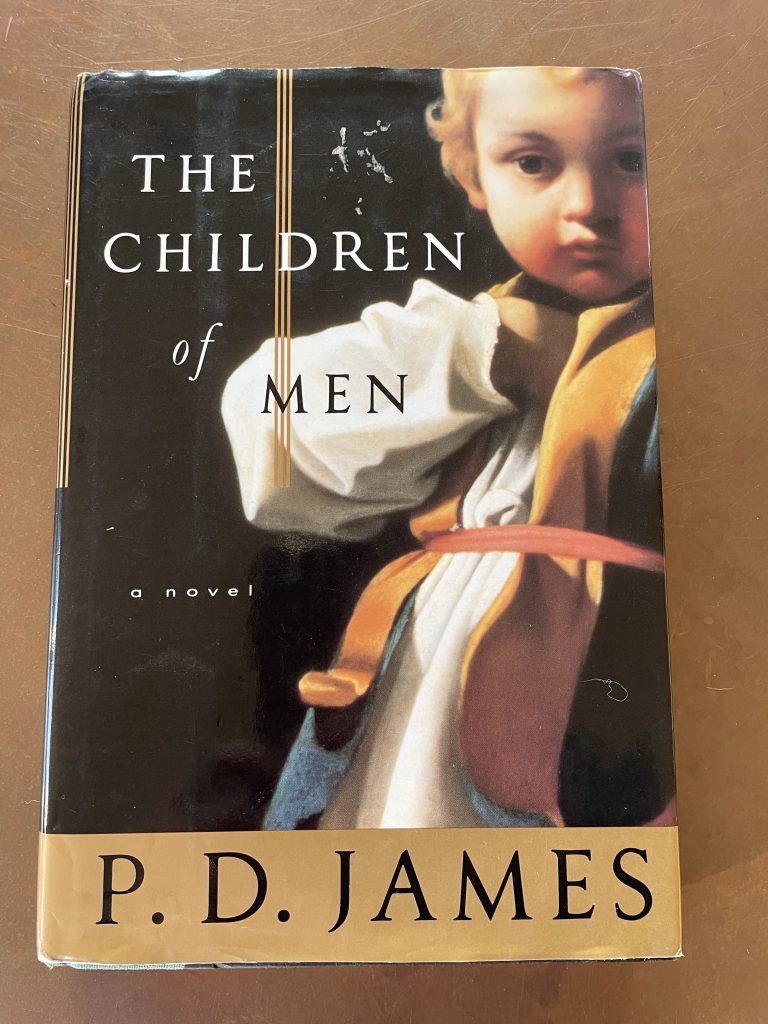
The Longer Review
Phyllis Dorothy James, Baroness of Holland Park, was a much beloved writer of primarily detective novels. Her first was published in 1962. It was later in her career, in 1992, that she wrote THE CHILDREN OF MEN. While this book is not exactly a detective novel, James unrolls the story with a similar template. She tells the story from the perspective of one man, Theodore Faron. Theo, as he is mostly called in the novel, is a fifty-year old professor of History at Oxford University. More importantly, the backdrop or the world in which he is living is aging and sterile. In the story (all set in England), no one has had a child for over twenty-five years.
The story opens with Theo’s journal entry about the violent death of the “last born” child on earth.
Early this morning, 1 January 2021, three minutes after midnight, the last human being to be born on earth was killed in a pub brawl in a suberb of Buenos Aires, aged twenty-five years, two months and twelve days. If the first reports are to be believed, Joseph Ricardo died as he had lived. The distinction, if one can call it that, of being the last human whose birth was officially recorded, unrelated as it was to any person virtue or talent, had always been difficult for him to handle. And now he is dead.
This book was an interesting read for me as a writer for a couple of reasons, one of which is the wobbly point of view part-way into the novel. First person journal entries in chapter 1-5. At the beginning of chapter 6, Theo grapples with his journal writing as a task in his overly-organized life that gave him no pleasure. So, in this chapter, Theo is still the primary “voice” of the story, but now telling the tale in 3rd person. In chapter 7, he’s back to a journal entry, therefore first person, and in chapter 8 and from here on out, the tale is a close 3rd POV, all from Theo’s perspective. I don’t think the average reader is disrupted by these slight shifts because Theo is still the storyteller. I noticed mainly because novice writers will sometimes shift like this accidentally and most editors would discourage these shifts. James pulls it off because of the “journaling” aspect of the beginning. I think she is using this to show Theo’s passivity. He observes and writes, but does not act. By chapter 8, he has fully made the decision to be a part of the story, not just an observer. He acts as a character in the unrolling narrative and will continue to do so until the end.
Another aspect of James’ writing that I enjoyed were her vibrant descriptions of faces and clothing. Long descriptions seem to be Theo’s favorite way (James’ favorite way) to judge/describe character. Of course, given the descriptions are coming from Theo, they also tell the reader about him. Regardless, I found myself enthralled by some of the descriptions, their length and detail…like this description of Jasper, a minor character and one of Theo’s older colleagues.
He was the caricature of the popular idea of an Oxford don: high forehead, receding hairline, thin, slightly hooked nose, tight-lipped. He walked with his chin jutting forward as if confronting a strong gale, shoulders hunched, his faded gown billowing. One expected to see him pictured, high-collared as a Vanity Fair creation, holding one of his own books with slender-tipped fingers.
Here is Miriam, a midwife and one the primary characters in the second half of the novel.
The woman was the only one to come forward and grasp Theo’s hand. She was black, probably Jamaican, and the oldest of the group, older than himself, Theo guessed, perhaps in her mid- or late fifties. Her high bush of short, tightly curled hair was dusted with white. The contrast between the black and white was so stark that the head looked powdered, giving her a look both hieratic and decorative. She was tall and gracefully built with a long, fine-featured face, the coffee-coloured face hardly lined, denying the whiteness of the hair. She was wearing trousers tucked into boots, a high-necked brown jersey and sheepskin jerkin, an elegant, almost exotic contrast to the rough serviceable country clothes of the three men. She greeted Theo with a firm handshake and a speculative, half-humorous colluding glance, as if they were already conspirators.
Science fiction is not always well-written in the literary sense, so it’s a pleasure to read a book like THE CHILDREN OF MEN, with literary flair on top of a good story.
Regarding the Anglican tidbits. I am a practicing Anglican as of 2018, so I was keying into the references. Theodore (whose name means God-lover) has a distant relationship with the faith of his people, but the reader encounters him coming more alive to this faith even as he moves toward more actions. In the world in which he is living, taking risks and acting, symbolize hope. Hope for a future is what the whole world has given up on. No science and knowledge has been able to solve the problem of humankind’s infertility. The idea of extinction and of God’s abandonment of his creation are stark in Theo’s understanding of the world. There is a beautiful moment, later in the story where a prayer is given from the Anglican book of common prayer over a dead friend.
Theo does the reading.
At first, his voice sounded strange to his own ears, but by the time he got to the psalm the words had taken over and he spoke quietly, with confidence, seeming to know them by heart. “Lord, thou hast been our refuge: from one generation to another. Before the mountains were brought forth, or ever the earth and the world were made: thou art God from everlasting, and world without end. Thou turnest man to destruction: again thou sayest, Come again, ye children of men. For a thousand years in thy sight are but as yesterday: seeing that is past as a watch in the night.”
Theo has awakened to the religion of his youth. It will play a large role in how he manages the final chapters of this gripping story.
THE FERRYMAN, A No-Spoiler Review of the Novel
Published in 2023 and still in hardback only, THE FERRYMAN, a novel by Justin Cronin, was a surprise find. My friend tipped me off. She is a serial reader, but normally reads lit fiction. She knows I read science fiction and speculative stuff. This book is science fiction and I’m not spoiling here. The first hint of a future/science fiction reality comes in the prologue. For the beginning half of the of the novel I was captured by the beauty of the writing. However, it’s always difficult to write a great ending, and THE FERRYMAN’s story/plot is complicated, very complicated and I’m not sure Cronin pulled it off.
First the Short Review: I Recommend THE FERRYMAN with Reservations
- Overall, lovely writing
- Suberb mystery and tension
- Interesting world-building
My Reservations:
- This is a long book, many words. Did it need to be this long?
- The last 1/3 of the book is a lot of explaining…the mysteries are not easily unwound and I’m still not sure I really get the ending
But still…it was a fun read. Here is one example of lovely writing in an early chapter:
“It came as a pleasant shock to me, how the man I’d known as a rather dry intellectual transformed himself so completely into a craftsman–a man who actually made things that the world could put to practical use Which only goes to show that people are more complicated than they let on and that even tragedy (sometimes only tragedy) can open the door to who we really are.”
This idea that tragedy opens up doors to identity is a theme that runs through the novel.

The Longer Review:
THE FERRYMAN’s setting is the fodder for much of the good writing. Prospera, a temperate island utopia, is home to a class of people known as Prosperans. Think Brave New World. Its inhabitants not only live and eat like royalty, they never die. In this world a technology exists that transfers the consciousness of an elder individual into a new body. Much of this process is surrounded in mystery because when the transfer takes place, memories are also wiped.
The new consciousness in a new body is in theory “the same person” being reborn, but without the baggage of memory. So is it really the same person? The reader wonders. For example, the main character, Proctor Bennet, dreams, and his dreams indicate a previous life, perhaps? Mysterious, though Prosperans are not supposed to dream. Something is amiss with Proctor Bennet.
Moreover, all is not well in Prospera. This becomes clear early in the story and drives much of the tension. There are other oddities in this world. Children with the re-inserted consciousness come from across the water on ferries at an older age, not as babies. All Prosperans have monitors inserted into their arms that measure their health and well-being. More importantly, an underclass of people perform the menial work on the island. These people have children naturally, live in a slum called the Annex, and do not seem to have access to the life-preserving technologies of the Prosperans. However, they make great art…an interesting discovery along the way, that those living in the Annex (as opposed to the Prosperans) live deeper lives, even though they are the underclass in society.
Proctor Bennet is a ferryman. He assists elders in the society who are ready to “end” their current lives. All this is done calmly, with signed contracts and quiet ceremony. When his own father is ready to board the ferry, Proctor is called and escorts his father to the ferry until his father unravels. A “scene” at the ferry is exactly what the Properans hate. Proctor’s experience around his father’s ugly departure across the sea thrusts him on a fact-finding mission. Clues emerge all around him. It’s around this section of the novel that I got the feeling there was glitch in the Matrix.
Except, the Matrix did the explaining soooo well. Maybe, this was because the Matrix was a film and not a novel. The backstory that unfolds in THE FERRYMAN is convoluted and complicated. The layers upon layers eventually are revealed, but the revelation felt forced to me, and so much less interesting than the setup. There was also a degree of cliche that felt disappointing to me. Same old, same old villains. Same old, same old catastrophe that set the thing in motion. All this is revealed by lots of explaining and lots of people having conversations with one another. Certainly, there needed to be some of this, but I felt there was too much. The style reminded me of Asimov, who loves to put two “smart” people (usually dominant white males) in a room together talking about and therefore telling the audience what’s going on. I’m not a fan of the style. So…those are my hangups. I think many will love this book. I know folks who adore Asimov for his ideas (if not his writing), but if I were you, I would maybe wait for the paperback, or pick up the audiobook…THE FERRYMAN could be fun to enjoy on a very very long road trip.
THEY CLONED TYRONE, A No-Spoiler Review
Tudum, Neflix’s official fan site, calls THEY CLONED TYRONE a gonzo sci-fi caper. I watched it with my son last week, a second time with my husband last night. Here’s my review. I enjoyed this caper at least as much the second time through. THEY CLONED TYRONE is rated R for violence, nudity and language. This film is streamable on Netflix.
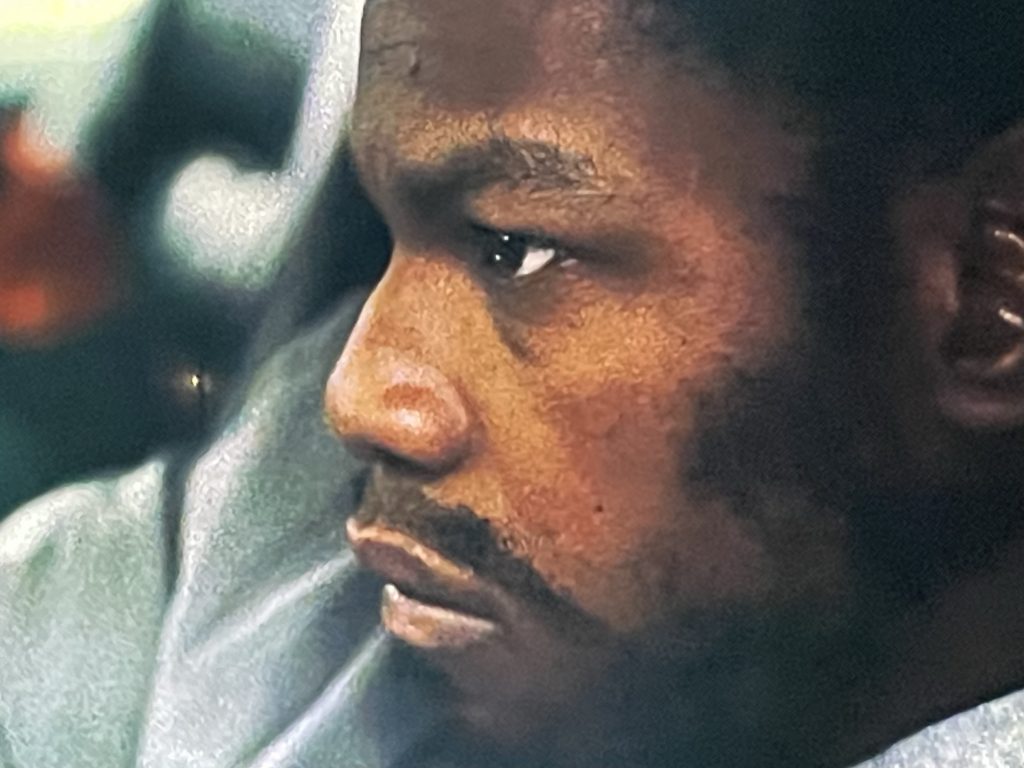
The Short Review
5 Reasons I recommend this film
- starring John Boyega, Jamie Foxx, Teyonah Parris, a fantastic trio, absolutely dynamic in all good ways
- authentic and gritty including design elements wonderfully contrasted in the 2 versions of “the Glen” portrayed
- a story that surprises…even knowing a clone is involved (see title), there are still some fantastic mysteries to solve
- THEY CLONED TYRONE was laugh-out-loud funny in parts, I found the dialogue and characters delightfully entertaining
- a serious social commentary worth contemplating
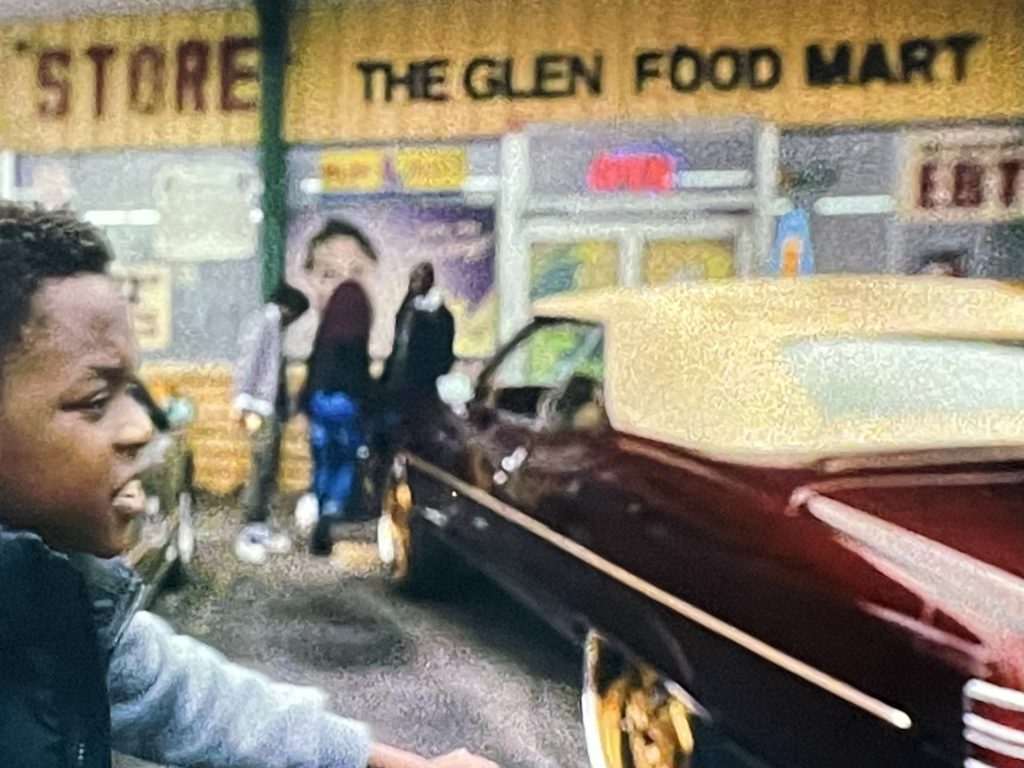
The Longer Review
When Jordan Peele decided to get into the film creation business and write/direct Get Out, Hollywood (and the general audience) sat up and took notice. Not only was Get Out entertaining in so many compelling ways, it was the fleshing out of an urban myth that a racially charged society like the US understood, even feared. Peele broke the mold with Get Out and then deepened his creative impact with Nope and Us, paving the way for creators like Juel Taylor. Taylor wrote and directed THEY CLONED TYRONE.
One of the things I loved about THEY CLONED TYRONE is that the narrative puts forward an allegorical reality in which systemic racism can be discussed in the real world. Moreover, it does this in an entertaining and thoughtful way. There is a scene early on, a face-off between the Slick, played by Jamie Foxx, and Fontaine, played by John Boyega, where Slick expresses his frustration about black on black violence in The Glen (the story’s setting–a poor black neighborhood of unknown location). To hear the phrase black on black violence verbalized in a narrative by a black character from the hood is a bold move by the filmmaker. He has to know that this idea has been taken up and championed by many conservative politicians, but rarely with appropriate context and compassion. However, when the Foxx character says it, I felt the sadness of the filmmaker’s commentary. It felt appropriately like a cry into the void.
Taylor didn’t overplay his hand with that line, but did leave the phrase vibrating throughout the rest of the narrative. By the finale of the film, the idea is turned upside down. I hesitate to say more because *spoilers*, but there are so many good questions posed in this film, I might just have to watch it a third time.
HARD-BOILED WONDERLAND AND THE END OF THE WORLD. A No-Spoiler Review
Murakami. Ah Murakami.
I took up this science fiction novel because having read so much mainstream scifi in the last few years, I found myself pining for beautiful prose. Haruki Murakami did not disappoint and HARD-BOILED WONDERLAND AND THE END OF THE WORLD is not only an imaginative story that passes the muster of science fiction, but had me laughing out loud at various points.
This story is rated R for sexual content.
First, the short review.

6 Reasons I recommend HARD-BOILED
- Masterful storytelling, including a full-blown mystery embedded in the structure of the novel
- Beautifully drawn characters who not only feel true, but are likeable in their quirkiness
- An imaginative world where scifi touches magic realism
- Humor
- Gorgeous prose and great writing in general
- Unicorns
2 Reasons to Avoid HARD-BOILED
- If you only read sciency science fiction and could care less about prose…this book might not be for you
- If you need a straight-forward ending, this story does not have that
The Longer Review
Step into the world of Murakami, his imagination and his Japanese way of looking at life. In this novel, he alternates point of view chapter by chapter. He does not explain how the two POV’s are connected until close to the end. Both storylines are told in first person. Both protagonists are male in midlife. His easy prose and everyman protagonist give the fictional world not just shape and beauty, but allow for emotional access. This hero is not someone extraordinary and with super powers. He is any one of us caught in a dilemma. The story meanders through a Tokyo imagined, not exactly futuristic on the surface. People drive cars, listen to Bob Dylan cassette tapes, and drink Miller High Life, but the city is run by two rival factions, the Factory and the System. A third group, the INKlings, folktale creatures that rule an underground society, live beneath the city. One character summarizes this way:
“Is Japan a total monopoly state or what? The System monopolizes everything under the info sun, the Factory monopolizes everything in the shadows. They don’t know the meaning of competition.”
“Inklings? A sharp guy like you don’t know about Inkling? A.k.a. infra-Nocturnal kappa. You thought kappa were folktales? They live underground. They hole up in the subways and sewers, eat the city’s garbage, and drink graywater. They don’t bother with human beings. Except for a few subway workmen who disappear, that is, he he.”
As for Murakami’s prose, an excerpt:
Something has summoned me here. Something intractable. And for this, I have forfeited my shadow and my memory. The River murmurs at my feet. There is the sandbar midstream, and on it the willows sway as they trail their long branches in the current. The water is beautifully clear. I can see fish playing among the rocks. Gazing at the River soothes me. Steps lead down from the bridge to the sandbar. A bend waits under the willows, a few beasts lay nearby. Often have I descended to the sandbar and offered crusts of bread to the beasts. At first they hesitated, but now the old and the very young eat from my hand. As the autumn deepens, the fathomless lakes of their eyes assume an ever more sorrowful hue. The leaves turn color, the grasses wither; the beasts sense the advance of a long hungry season and bowing to their vision, I too know a sadness.
Ah, Murakami and the magic of his prose.
RED MARS, by Kim Stanley Robinson, A No-Spoiler Review of the Classic Scifi Novel
The Short Review
5 reasons RED MARS is a must-read for the scifi fanatic and anyone remotely interested in planetary geology:
- RED MARS is a KSRobinson classic, published in 1992 and winner of the Nebula and the first of his acclaimed Mars Trilogy
- The story imagines life on Mars in a way that feels scientifically viable and compelling, therefore relevant to the current and growing conversation around Mars exploration
- Scientists are the narrators of this story. They are also the heroes, sometimes the villains, the problem solvers and the work horses. I was especially drawn to the “builder” character, Nadia
- The planetary geology content, naturally integrated into the story, is breathtakingly fun
- Despite being over 170K words long, KSR does not get bogged down in the “how would that ever be possible” science scenarios, but drives the story forward through characters and the politics that pressure a budding Martian community
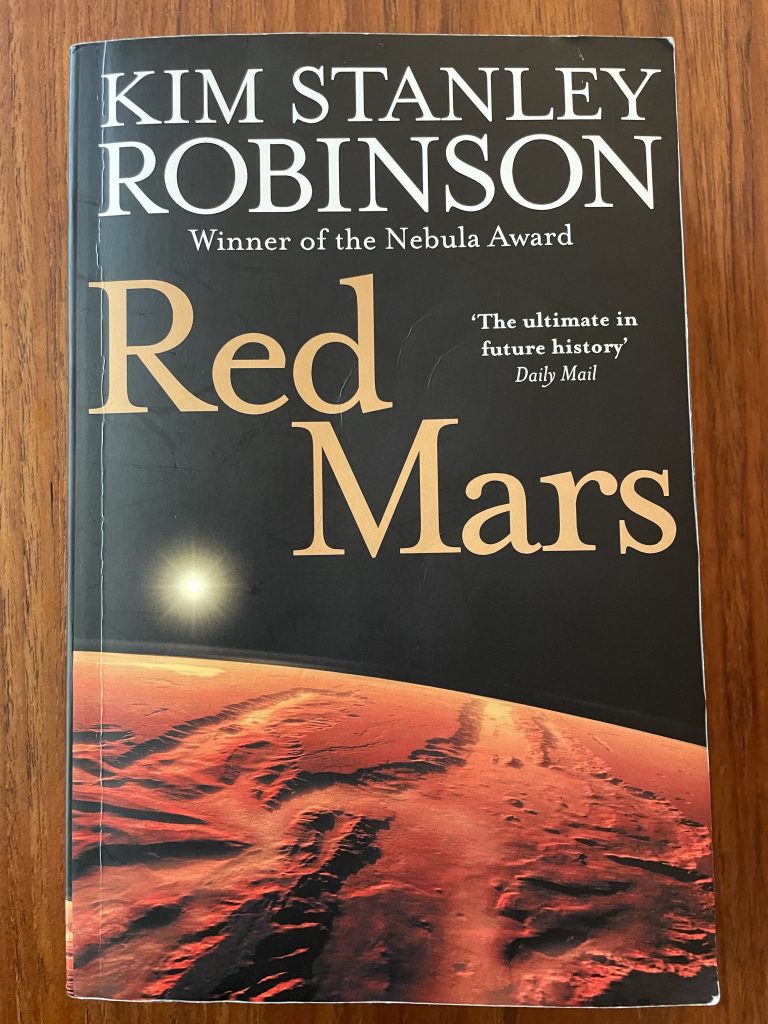
The Longer Review
RED MARS tells the story of the first 100 scientists sent to Mars by a multi-national Earth entity called UNOMA, United Nations of Martian Affairs. The story PG-13 (for some sexual content) follows about 10 of those scientists closely, though many others are referred to and are part of the action in direct and indirect ways. The novel is broken up into eight parts and each of the parts has a different primary narrator. I do think Robinson’s choice on point of view works in a novel this long, adding a level of complexity and depth to the very audacious idea that Mars might be “tamed” by human beings. Robinson plays with themes around the idea that really smart people might be able to build a better civilization from scratch, and form some kind of utopia, but does not make the task easy on the idealogues within his story.
Various characters, all of whom are scientists in one discipline or another, give voice to ideas of alternative governing and living environments. The sharing of abundant resources is the initial reality for the first 100, but eventually, when new groups arrive on Mars, the corporations who have funded the exploration and building, come calling for the planet’s vast natural resources.
The conflict that arises is somewhat predictable and draws out the best and worst of the people in charge who are trying to manage a fragile, but quickly expanding human presence on Mars.
Meanwhile, Earth is falling into total chaos. Robinson does not spend any time showing the reader Earth itself, but shows it via news stories viewed by the inhabitants of Mars. Earth’s chaos is also a reason why many thousands of migrants are streaming to the new world. Robinson does lean left in his politics (proudly so) and sees corporate giants as the villain, though the villain is also amorphous in the story. Robinson’s ideas don’t come across as preachy to me. He’s a deep thinker and a thoughtful writer, so he understands the grittiness of governing and the probable impossibility of building that utopia even if one does start with 100 brilliant scientists.
Many science fiction readers will not mind the length of RED MARS, but at times, I confess to being a bit bored and wondered…Where is this story going? However, I did stick it out and the payoff was decent. It stands alone as a novel, without the kind of cliffhangers that drive you to the second book. Will I read the next two books in the trilogy? Probably yes, but not this summer.
1899, A No-spoiler Review
If you liked the television series LOST and you’re a fan of Baran bo Odar and Jantje Friese (creators of DARK) you will want to log into to your Netflix account and start streaming 1899 now. With that said, I give warning, a second season was not renewed. For some, this will be a reason not to watch. However, I wonder if buzz about the show might result in the approval of a second season. I hope so because I really want to understand this world that falls into the category of mystery/paranormal/science fiction.
First, the short review
4 Reasons to Watch the series, 1899
- Excellent production overall, with creepy settings and period costumes
- Well-acted by a diversity of performers, many of whom are new to the American audience, though a few starred in DARK
- Lots of tension and mystery
- Claustrophobic and isolating setting. Ocean-going vessel all alone on the open seas (well…sort of alone)
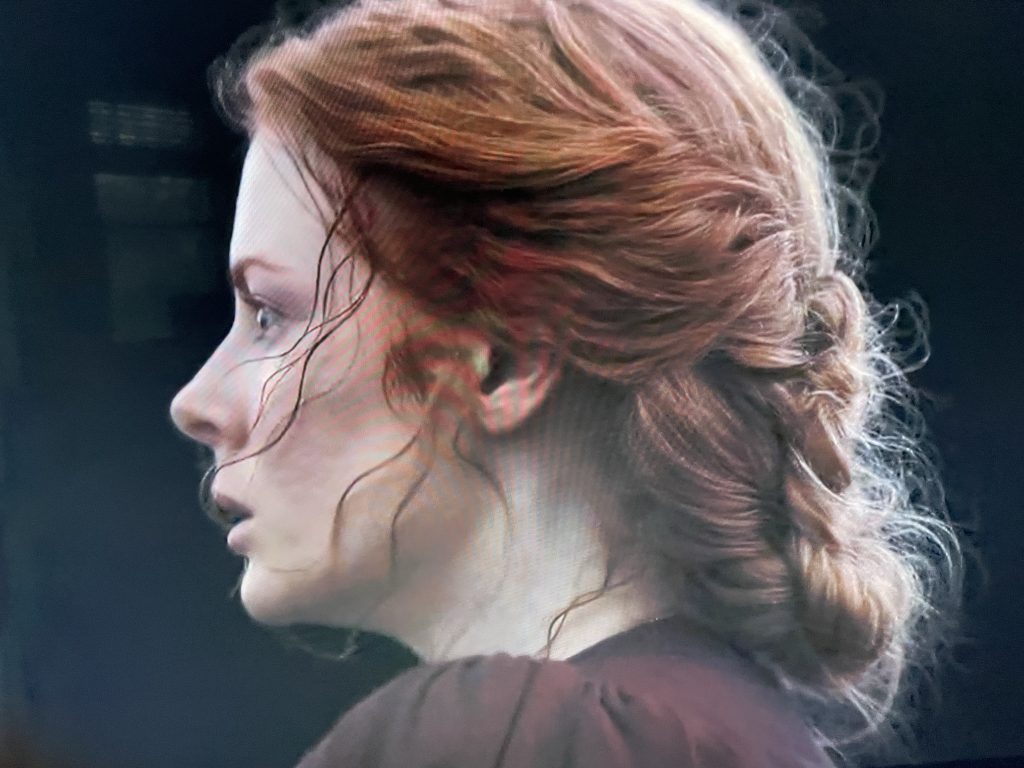
A Longer Review
1899 is free to Netflix subscribers. Eight episodes make up the first season. I rate it R for sexual content and some violence.
Baran bo Odar and Jantje Friese bring to the screen this mind-twisting mystery with a style that broods and draws in its audience. That style will be familiar to fans of Odar and Friese’s imaginative work in the time-travel story, DARK.
1899 opens with the main character, Maura Franklin-Singleton, played by Emily Beecham, waking from a nightmare. The viewer quickly learns that Maura is living in another century. The title of the series is a helpful reference point as are the period costumes. Maura is also aboard an ocean liner with hundreds of other passengers, on its way to America from Europe. She appears to be traveling alone.

From the first moment of the longer narrative arc, confusion about reality is introduced to the viewer through the character of Maura. Her nightmare before waking is a terrifying scene in what seems to be a sanitorium for the mentally ill. She is strapped into a chair and given an injection while the command WAKE UP jolts her out of sleep and into the “real” world. The audience, along with Maura, sense the nightmare holds a degree of reality as she views the red marks on her wrists, where in the nightmare, she was strapped to the chair. She quickly covers those up with her long, victorian sleeves, and heads to the ship’s upper-class dining hall. To add drama to this ship’s community at large, there is a large portion of underclass people living below deck for the duration of the cruise.
Waking from a dream becomes a thread throughout the story as other characters, some of her fellow travelers, experience dreaming and waking to the same command, WAKE UP. The stories of these characters are slowly woven together into a climax that truly surprises.
THAT HIDEOUS STRENGTH, A Review with Minor Spoilers
The third and final science fiction novel written by CS Lewis, THAT HIDEOUS STRENGTH, is touted by some as a fantasy novel. I hesitate to go deeper to explain why that might be, for fear of spoiling, but let’s just say that the story takes place on Earth, not in space, and one of the key characters who acts in a miraculous and decisive way to defeat the enemy, is a wonderfully fantastical character.
As I have talked with friends who have read all three, I get different answers about which is the “favorite” in the trilogy. There are individuals who love Out of the Silent Planet. I personally like it for its length…it is as short as a novella and a tight little narrative. Others love Perelandra. I appreciate Perelandra, but there are portions where reading was a chore. For me, THAT HIDEOUS STRENGTH is the true novel. It is my favorite of the three.
The Short Review: 5 Reasons I Recommend THAT HIDEOUS STRENGTH
- Compelling main character(s) both grappling with interior life, particularly with identity and faith
- A rich setting, a modern academic world and progressive (Lewis’ words) university leadership that feels creepy, yet familiar
- An amorphous and terrifying villain, well written and historically relevant
- In the midst of the horror, a comedic twist that feels like a Shakespeare switch-a-roo
- A companion novel to 1984. Many minds in this era of the 20th century understood the tyranny of government control. Lewis and Orwell were cut from that same cloth. Warnings that are relevant today and always.
For me, the young married couple, Mark and Jane, makes this story compelling in a way that is unique among the three novels in the trilogy. Jane is a crucial player and well developed. In the previous novels Lewis did not present the reader with a compelling female lead who was relatable. The Perelandra Queen is wonderful, but otherworldly. Jane, in this book, is utterly relatable. Her discomfiture with domestic life, her struggle with a husband who is caught up in his own professional world, felt deeply real. Mark is also real. Lewis highlights his hubris and insecurity, showing the reader how one might choose to align oneself with a horrific community. Mark’s longing for belonging, his hope for recognition are powerful human motivators and have the capacity to diminish the moral spine, especially if that spine is wobbly (as Mark’s is). Despite Mark’s poor choices, I got the feeling that Lewis, like the deity he knows and loves, has not given up on this lost soul. When Mark sinks low enough and faces the worst of himself, there is a promise of redemption.
THAT HIDEOUS STRENGTH is a story with complex layers. The deeper conversation about nations and their “haunting” is a topic I will not cover in this review, but in case you’re wanting to understand more, an article in The Imaginative Conservative called America’s “Logres”: The Mythology of a Nation helped me muse on what might be the American Haunting. That conversation is a crossover of the spiritual and the literary and takes the reader deeper into the mind of CS Lewis and those who were writing in like spirit, JRR Tolkien being one of those writers.
DON’T WORRY DARLING, A Film Review
DON’T WORRY DARLING is a feature-length film, streamable on HBO after a limited release in theaters. This film, produced and directed by Olivia Wilde, provides a semi-new twist on an old science fiction trope. I won’t say what that trope is in the short review, however it is likely to be sniffed out by the scifi fan. It’s pretty obvious. Also, as typical with HBO productions, the sex scenes are explicit and emotionally intense. I give it an R rating because of those scenes, otherwise, it might have been a film the whole family could watch and talk about. Ah well…

First, the No-Spoiler Short Review
5 Reasons DON’T WORRY DARLING is a fun watch
- Gorgeous highly stylized mid-century modern setting
- Beautiful actors
- The fashion and hair are worth the price of admission
- Eerie undertones and mystery that slowly ramp up tension
- Semi-cathartic ending

3 Ways DON’T WORRY DARLING missed the mark
- I’ve watched and read various versions of highly controlled utopias. The story trajectory of DON’T WORRY DARLING was predictable. Add a few cliches here and there…and its style begins to feel overwrought.
- This film tries to make a statement about marriage by catering to a type of male fantasy around men as providers and women as housewives/stay at home wives. It did not match up to others of this story type in complexity or power, like Atwood’s The Handmaid’s Tale
- I wasn’t convinced in the characters themselves, that Jack (played by Harry Styles) in particular, would make the choices he makes

Longer Review (beware of spoilers)
DON’T WORRY DARLING showcases the creative vision of director, Olivia Wilde, along with writers/screenwriters Carey Van Dyke, Shane Van Dyke and Katie Silberman.
In the film, Olivia Wilde puts to the screen a utopia in a Southern California desert, a place where beautiful couples live in a 1950s-like fantasy world. Think, Leave It to Beaver, but with racy sex.
Traditional roles underpin the community’s existence. The husbands work each weekday. The wives stay home and though some cleaning and cooking is required of them, they otherwise sip cocktails, take ballet lessons, swim, sunbathe and shop. Children are mostly absent with a few exceptions, but the overall picture is one of leisure and luxury. Hardly a problem exists until one of its female members (a secondary character) goes off the rails and displays what the leader of the community deems irrational, mentally disturbed behavior. The film audience knows that this woman’s rants are the beginning of an unravelling.
The main character, Alice (Florence Pugh) witnesses the suicide of the troubled woman, Margaret, someone she had considered a friend. In trying to help Margaret after she both slits her throat and throws herself from a rooftop, Alice is commandeered and quieted into submission by men in red jumpsuits who seem to police the community. After this, she falls under the treatment of the community’s doctor, is offered meds, and given electroshock therapy. The therapy backfires and causes Alice to remember her “real life”. Everything she is experiencing in this utopia is false, a virtual reality that her husband has committed her to, for reasons that were challenging for me to understand. In theory, her husband loves her and wants this ideal utopia for them both, but by the end, he is willing to subdue her himself, forcibly. My best guess is that he was wanting to give his wife a good life but could not in reality. In real life she is a surgeon, so some of the logic breaks down here because I could not figure out (on one viewing) how he was able to afford this virtual reality without his wife working. Possibly, the “work” he is doing each day is something illegal, and his secrecy about it is a trade he makes for a virtual paradise. However, he is basically imprisoning his wife and forcing her into an identity of his making. That is evil and perhaps Wilde is trying to show via hyperbole, how this can sometimes be the case in an actual marriage. However, the lesson feels forced to me as does the story overall.
Despite that, the film did entertain and I enjoyed the setting, clothing and hair, an artistic landscape with a story that almost measured up to the visual style.
PERELANDRA, A Review
PERELANDRA is the second installment in CS Lewis’ space trilogy. Below is my no-spoiler short review, but the longer review that follows the image of PERELANDRA’s cover, will contain spoilers…beware. This is not a children’s book, but I recommend this novel to all ages who like the story. For all readers, taking the time to discuss after or along the way will deepen philosophical and theological understanding.
Link to OUT OF THE SILENT PLANET for a review of the first book in the trilogy.
5 Reasons to Read PERELANDRA, A Classic Science Fiction Story
- One of the more unique portrayals in literature of paradise and/or a pre-fallen world
- Beautiful CS Lewis prose
- The ideas are put forward clearly and by someone well acquainted with 20th century ideas
- Finally…a strong female character (there were none in the first novel)
- Read all three to make sense of what Lewis was trying to accomplish in the longer narrative arc
3 Reasons PERELANDRA is My Least Favorite of the Trilogy
- There are so few characters and the villain does not arrive until about 1/3 of the way into the book
- Not a lot of drama…there is a slow build and eventually, high drama, but it takes the novel a while to arrive (see #1)
- A lot of speech-making in the final pages. Interesting ideas, but coming at me in my least favorite non-dramatic package
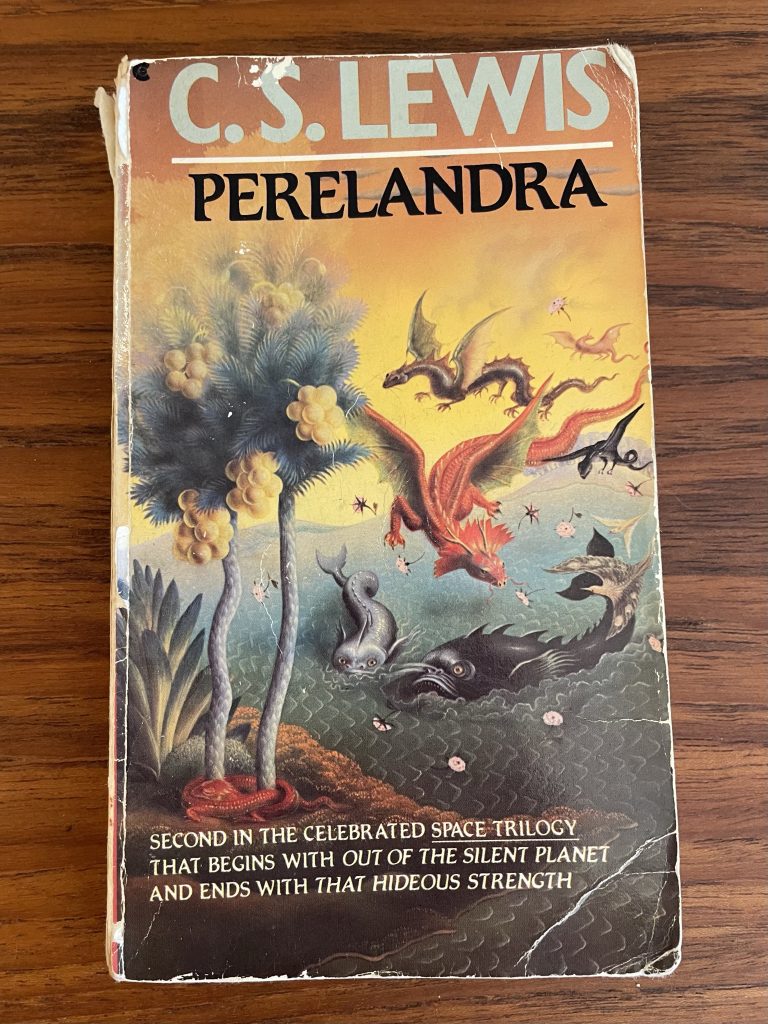
The Longer Review (With Spoilers)
While PERELANDRA is my least favorite of the three books Lewis wrote in the scifi genre, it does have its merits.
For one, anyone who has read his Narnia books, knows how well CS Lewis puts his imagination on the page. He has the ability to create a world both strange and fabulous and took on a bold task to put before the reader a paradise, a pre-civilization and pre-fallen planet with only two human-like people. Basically, he created an Eden. And how would one write this in a convincing way?
This excerpt, one of many examples…just gorgeous.
Now he had come to a part of the wood where great globes of yellow fruit hung from the trees–clustered as toy-balloons are clustered on the back of a balloon-man and about the same size. He picked one of them and turned it over and over. The rind was smooth and firm and seemed impossible to tear open. Then by accident, one of his fingers punctured it and went through into coldness. After a moment’s hesitation, he put the little aperture to his lips. He had meant to extract the smallest experimental sip, but the first taste put his caution all to flight. It was, of course, a taste, just as his thirst and hunger had been thirst and hunger. But then it was so different than any other taste that it seemed a mere pedantry to call it taste at all. It was like the discovery of a totally new genus of pleasure, something unheard of among men, out of all reckoning, beyond all covenant. For one draught of this on earth wars would be fought and nations betrayed.
Elwin Ransom, a professor of philology, is the narrator here. He was also the protagonist in Out of the Silent Planet. In this excerpt, he is telling his tale to a fictionalized version of CS Lewis after returning from his mission to the planet Perelandra. Ransom was sent to Perelandra by the angelic ruler of Mars (Malacandra). The reader is acquainted with this ruler from the previous book. In Out of the Silent Planet, Ransom is kidnapped and brought to Malacandra. That is where he meets Oyarsa, the ruler of Mars. Oyarsa does make an appearance in this novel, as does Weston, one of the academics who kidnapped Ransom in the first story. Weston, the primary rival to Ransom, acts as the tempter in this narrative. He does this not by his own cleverness and strength, but by something more frightening. Weston has given himself over to the bent angelic ruler of Earth, Satan. After Weston arrives on Perelandra in his space vessel, Ransom comes to understand his mission, that he has been sent to thwart the bent Oyarsa by thwarting Weston.
In the story, Weston is an academic with the worst intellectual vices; hubris combined with a flamboyant humanism that borders on narcissism. Tragically, he falls under a true evil in his search of spiritual answers to the mysteries he experienced on Malacandra. Weston’s journey into evil reads like something out of a horror novel (or the Bible).
“Idiot,” said Weston. His voice was almost a howl and he had risen to his feet. “Idiot,” he repeated. “Can you understand nothing?…This is the old accursed dualism in another form. There is no possible distinction in concrete thought between me and the universe. In so far as I am the conductor of the central forward pressure of the universe, I am it. Do you see, you timid, scruple-mongering fool? I am the Universe. I, Weston, am your God and your Devil. I call the Force into me completely…”
Then horrible things began happening. A spasm like that preceding a deadly vomit twisted Weston’s face out of recognition. As it passed, for one second something like the old Weston reappeared–the Old Weston, staring with eyes of horror and howling, “Ransom, Ransom! For Christ’s sake don’t let them—” and instantly his whole body spun round as if he had been hit by a revolver-bullet and he fell to the earth, and was there rolling at Ransom’s feet, slavering and chattering and tearing up the moss by the handfuls…
I was in my thirties the last time I read PERELANDRA and I did not remember how clearly this Weston character gives himself over to evil. Nor did I remember that Ransom comes to the realization that he will have to destroy Weston in hand to hand combat if he is to defeat him.
That Ransom believes he must assassinate his rival provoked my horror. Moreover, the scenes of his battle with Weston are brutal. Lewis does not hold back on that reality, but the idea of this existential battle brought to mind Dietrich Bonhoeffer. Lewis might never have known Bonhoeffer personally, but the ideas Bonhoeffer was writing about and preaching about (in Hitler’s Germany) were likely familiar to him…as they were to every thinking Christian of the time.
Bonhoeffer, while struggling to be a faithful clergy member under Nazi rule in Germany, came to terms with the idea that it was in fact a righteous or just act to kill a man who had fully given himself over to evil. That is why Bonhoeffer was executed in the end, as he played a role in an assassination attempt against Hitler. Below is an excerpt of a sermon on Colossians 3:1-4, a sermon he gave most likely after he had made the decision to collaborate with a part of the resistance determined to assassinate the Fürher.
“Instead, and precisely because our minds are set on things above, we are that much more stubborn and purposeful in protesting here on earth… Does it have to be so that Christianity, which began as immensely revolutionary, now has to remain conservative for all time? That every new movement has to blaze its path without the church, and that the church always takes twenty years to see what has actually happened? If it really must be so, then we must not be surprised when, for our church as well, times come when the blood of martyrs will be demanded. But this blood, if we truly have the courage and honour and loyalty to shed it, will not be so innocent and shining as that of the first witnesses. Our blood will be overlaid with our own great guilt.” (DBW 11, 446) (Schlingensiepen, Kindle Location 2427)
Bonhoeffer’s words evoke the idea that a conservative church is potentially an anemic one. His mention of our great guilt in the sermon I took two ways. One, the church is guilty when it does not act (or waits too long) to stand up to evil. Two, if it does join the revolutionaries, it potentially falls under the guilt of questionable acts. When evil can only be defeated by an act that lays outside of the norm of Christian ethics, there is plenty of guilt to go around. However, Bonhoeffer did not shrink back from taking on that guilt for what he (and history) thought to be the greater good. Moreover, his writings on this remain strong pillars in just-war theory and the Christian struggle with realism versus pacifism.
Lewis travels a similar line of reasoning in this novel and it should not surprise the reader that when the character Ransom leaves the planet Perelandra, he leaves having accomplished his task, but with a wound on his foot that refuses to heal this side of heaven.
